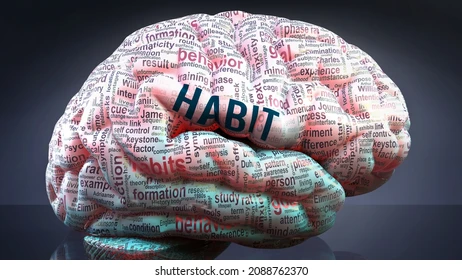Emily Nguyen Week 15: Habit and Memory

Habit and Memory In honor of AP exams being over, I will be sharing some healthy habits that help boost both memory and cognitive function The first habit is obvious, but sleeping is extremely important in maintaining a functioning brain, as “Sleep strengthens connections between brain cells and different brain regions, and moves information into areas of the brain that are more efficient for storing it,” according to sleep expert Richard Shane, where “Dreaming sorts and words to reach word count organizes information, makes connections, and even solves problems. All of this strengthens memories and improves recall.” Throughout my years of high school and middle school, I've grossly underestimated the power of sleep, sleeping an average of four to five hours a night. I would spend nights before tests cramming information and getting poor sleep. In reality, you can't turn your 2 into a 5 the night before the AP exam, but you can bring your 5 down to a 2 if you don't rest wel...



